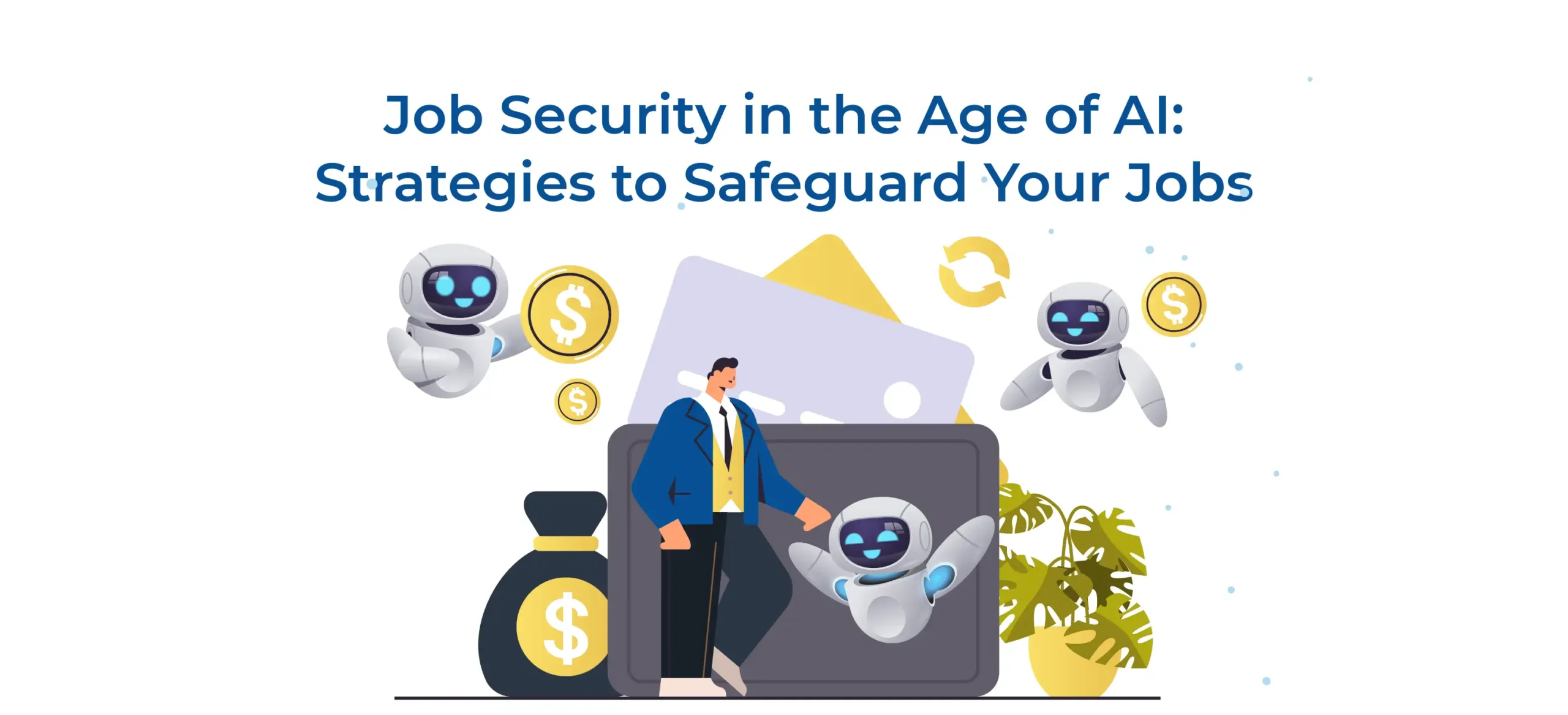
Artificial Intelligence (AI) is transforming industries and reshaping job markets. From automating repetitive tasks to making data-driven decisions, AI has proven to be a game-changer. While some worry about AI replacing jobs, the truth is, learning AI can make you indispensable in your workplace. This guide will show you how to protect your job by embracing AI and positioning yourself as an asset in the AI-driven world.
Why AI Is the Future of Work
AI is not just a trend—it’s a revolution. According to a report by PwC, AI could contribute up to $15.7 trillion to the global economy by 2030. Here are key reasons why AI is shaping the future:
- Efficiency Boost: AI automates mundane tasks, allowing businesses to focus on strategic goals.
- Enhanced Decision-Making: Machine learning (ML) models analyze massive datasets faster than humans.
- Demand for AI Skills: Jobs requiring AI expertise have surged, creating opportunities for skilled workers.
Instead of fearing AI, workers should focus on learning it. This mindset shift can turn AI from a perceived threat into a tool for career growth.
How AI Is Impacting Different Job Sectors
AI adoption varies across industries, but its influence is universal. Understanding how AI affects your industry is crucial:
1. Healthcare
- AI Applications: Diagnostics, patient management, and drug discovery.
- How to Adapt: Learn to use AI tools like IBM Watson or AI diagnostic apps.
2. Finance
- AI Applications: Fraud detection, algorithmic trading, and customer insights.
- How to Adapt: Gain proficiency in AI-powered tools like QuickBooks AI or Salesforce.
3. Retail
- AI Applications: Personalized recommendations, inventory management, and chatbots.
- How to Adapt: Explore AI-driven CRM software or learn about AI in e-commerce.
4. Manufacturing
- AI Applications: Predictive maintenance, quality control, and robotics.
- How to Adapt: Familiarize yourself with AI platforms like TensorFlow or PyTorch.
5. Marketing
- AI Applications: Content optimization, customer behavior analysis, and ad targeting.
- How to Adapt: Learn SEO strategies integrated with AI tools like Semrush or Jasper AI.
Steps to Protect Your Job by Learning AI
Let’s explore practical steps to stay ahead in the AI-driven workplace:
1. Understand the Basics of AI
Begin with foundational knowledge:
- What to Learn: Machine learning, neural networks, and natural language processing (NLP).
- Resources: Online courses on platforms like Coursera, edX, and Udemy.
2. Develop Technical Skills
To work alongside AI, technical expertise is crucial:
- Learn Programming: Start with Python, a popular language for AI.
- Explore AI Frameworks: TensorFlow and PyTorch are industry standards.
3. Embrace AI Tools in Your Job
Identify AI tools relevant to your field:
- For Content Creators: Tools like Grammarly and Jasper AI.
- For Analysts: Data visualization tools like Tableau.
4. Stay Updated with AI Trends
AI evolves rapidly; staying informed is essential:
- Read AI Blogs: Follow sites like Towards Data Science or OpenAI’s blog.
- Attend Webinars: Participate in industry-specific AI discussions.
5. Collaborate with AI Experts
Networking with AI professionals can accelerate learning:
- Join Communities: Platforms like Kaggle or GitHub host thriving AI communities.
- Seek Mentorship: Connect with AI experts on LinkedIn.
How to Use AI to Boost Your Productivity
Rather than viewing AI as competition, use it to enhance your efficiency:
- Automation: Automate repetitive tasks using AI-based software.
- Data Insights: Leverage AI for actionable insights, improving decision-making.
- Skill Augmentation: Use AI to enhance creativity and problem-solving.
The Importance of Soft Skills in the AI Era
AI can’t replace human qualities like empathy and creativity. Developing these skills alongside AI knowledge is key:
- Critical Thinking: Learn to interpret AI-driven insights.
- Communication: Translate complex AI data into actionable business strategies.
- Adaptability: Stay open to learning and adapting as AI technology evolves.
Case Studies: Real-Life Examples of AI Job Integration
1. AI in Customer Service
- Challenge: Chatbots replacing customer service representatives.
- Solution: Learn to manage and improve chatbot algorithms.
2. AI in Journalism
- Challenge: AI tools generating articles.
- Solution: Focus on investigative journalism and storytelling, areas AI can’t replicate.
3. AI in Education
- Challenge: Automated grading systems.
- Solution: Develop skills in personalized education using AI analytics.
Certifications to Boost Your AI Knowledge
Earning certifications can validate your AI expertise:
- Google AI Certification
- IBM AI Engineering Professional Certificate
- Microsoft AI Fundamentals
These certifications not only enhance your resume but also demonstrate your commitment to staying relevant.
Overcoming Challenges in Learning AI
Learning AI might seem daunting, but perseverance is key. Here’s how to tackle common challenges:
- Time Management: Dedicate specific hours to learning.
- Technical Barriers: Start with beginner-friendly resources.
- Continuous Learning: Treat AI education as an ongoing process.
Future-Proof Your Career with AI
As AI reshapes job markets, adaptability is your greatest ally. By investing in AI skills, you can ensure long-term career security. Remember, AI is a tool, not a threat—it’s up to you to wield it effectively.
Final Thoughts: The Power of Learning AI
Protecting your job in the age of AI is about staying proactive. By learning AI, you position yourself as a forward-thinking professional ready to embrace the future. Start today, and let AI become your ally in career growth.


